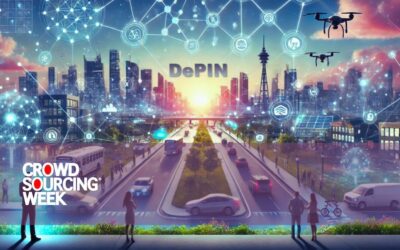 Lauren Anderson, Chief Knowledge Officer of Collaborative Lab, joined us to discuss the shifting consumer mindset toward sharing, the future of collaborative consumption, and how businesses can keep up in the February 13, 2014 Twitter #CrowdChat hosted by Crowdsourcing Week.
Lauren Anderson, Chief Knowledge Officer of Collaborative Lab, joined us to discuss the shifting consumer mindset toward sharing, the future of collaborative consumption, and how businesses can keep up in the February 13, 2014 Twitter #CrowdChat hosted by Crowdsourcing Week.
According to Lauren and other participants, the mindset over the sharing economy is changing-
- At first, people considered collaborative consumption as a cool new thing to do – something more efficient and more social than ownership
- Opening up new groups of people interested in sharing through tech has brought the behaviour to a mainstream level
- What people discovered is that collaborative consumption is not just fun & efficient, but also strengthens community and can be sustainable too.
- Cool tech was important to shift ‘sharing’ away from some of its more negative connotations.
- Trend towards access over ownership is definitely going global with collaborative consumption activity from US, EU, Middle East, Asia, Africa, Pacific
Roadblocks include:
- This is a hard situation for regulators and govts as collaborative consumption is largely operating in a legal grey area – no precedents.
- Biggest hurdle is overcoming trust issues and also aspirational ownership. Need to demonstrate sharing can be more beneficial
There is a great potential for new business models centered on collaborative consumption and the following points were highlighted during the chat.
- How can company tap into idling capacity of its assets? Borrow/rent rather than buy? Build strong community w critical mass?
- It isn’t about losing revenue, but instead creating additional revenue streams through rental, resale or brokering.
- Transparency also critical as p2p marketplaces shift relationship away from biz-2-consumer – now consumers are at the core!
- Businesses need to adopt “onward logistics” in supply chain as well as reverse logistics to incorporate cradle-to-cradle principles.
- There are opportunities at every layer – from startup to industry to government – in 5 yrs should be integrated like sustainability.
- While it’s not a silver bullet, we see collaborative consumption as an integral part of solution to a better greener happier way of life



0 Comments